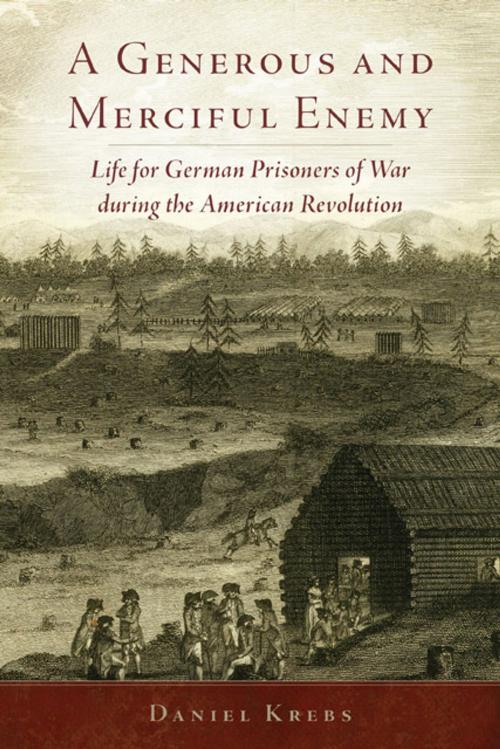A Generous and Merciful Enemy
Life for German Prisoners of War during the American Revolution
Nonfiction, History, Americas, United States, Revolutionary Period (1775-1800), Germany, Military| Author: | Daniel Krebs | ISBN: | 9780806189055 |
| Publisher: | University of Oklahoma Press | Publication: | April 30, 2013 |
| Imprint: | University of Oklahoma Press | Language: | English |
| Author: | Daniel Krebs |
| ISBN: | 9780806189055 |
| Publisher: | University of Oklahoma Press |
| Publication: | April 30, 2013 |
| Imprint: | University of Oklahoma Press |
| Language: | English |
Some 37,000 soldiers from six German principalities, collectively remembered as Hessians, entered service as British auxiliaries in the American War of Independence. At times, they constituted a third of the British army in North America, and thousands of them were imprisoned by the Americans. Despite the importance of Germans in the British war effort, historians have largely overlooked these men. Drawing on research in German military records and common soldiers’ letters and diaries, Daniel Krebs places the prisoners on center stage in A Generous and Merciful Enemy, portraying them as individuals rather than simply as numbers in casualty lists.
Setting his account in the context of British and European politics and warfare, Krebs explains the motivations of the German states that provided contract soldiers for the British army. We think of the Hessians as mercenaries, but, as he shows, many were conscripts. Some were new recruits; others, veterans. Some wanted to stay in the New World after the war. Krebs further describes how the Germans were made prisoners, either through capture or surrender, and brings to life their experiences in captivity from New England to Havana, Cuba.
Krebs discusses prison conditions in detail, addressing both the American approach to war prisoners and the prisoners’ responses to their experience. He assesses American efforts as a “generous and merciful enemy” to use the prisoners as economic, military, and propagandistic assets. In the process, he never loses sight of the impact of imprisonment on the POWs themselves.
Adding new dimensions to an important but often neglected topic in military history, Krebs probes the origins of the modern treatment of POWs. An epilogue describes an almost-forgotten 1785 treaty between the United States and Prussia, the first in western legal history to regulate the treatment of prisoners of war.
Some 37,000 soldiers from six German principalities, collectively remembered as Hessians, entered service as British auxiliaries in the American War of Independence. At times, they constituted a third of the British army in North America, and thousands of them were imprisoned by the Americans. Despite the importance of Germans in the British war effort, historians have largely overlooked these men. Drawing on research in German military records and common soldiers’ letters and diaries, Daniel Krebs places the prisoners on center stage in A Generous and Merciful Enemy, portraying them as individuals rather than simply as numbers in casualty lists.
Setting his account in the context of British and European politics and warfare, Krebs explains the motivations of the German states that provided contract soldiers for the British army. We think of the Hessians as mercenaries, but, as he shows, many were conscripts. Some were new recruits; others, veterans. Some wanted to stay in the New World after the war. Krebs further describes how the Germans were made prisoners, either through capture or surrender, and brings to life their experiences in captivity from New England to Havana, Cuba.
Krebs discusses prison conditions in detail, addressing both the American approach to war prisoners and the prisoners’ responses to their experience. He assesses American efforts as a “generous and merciful enemy” to use the prisoners as economic, military, and propagandistic assets. In the process, he never loses sight of the impact of imprisonment on the POWs themselves.
Adding new dimensions to an important but often neglected topic in military history, Krebs probes the origins of the modern treatment of POWs. An epilogue describes an almost-forgotten 1785 treaty between the United States and Prussia, the first in western legal history to regulate the treatment of prisoners of war.















